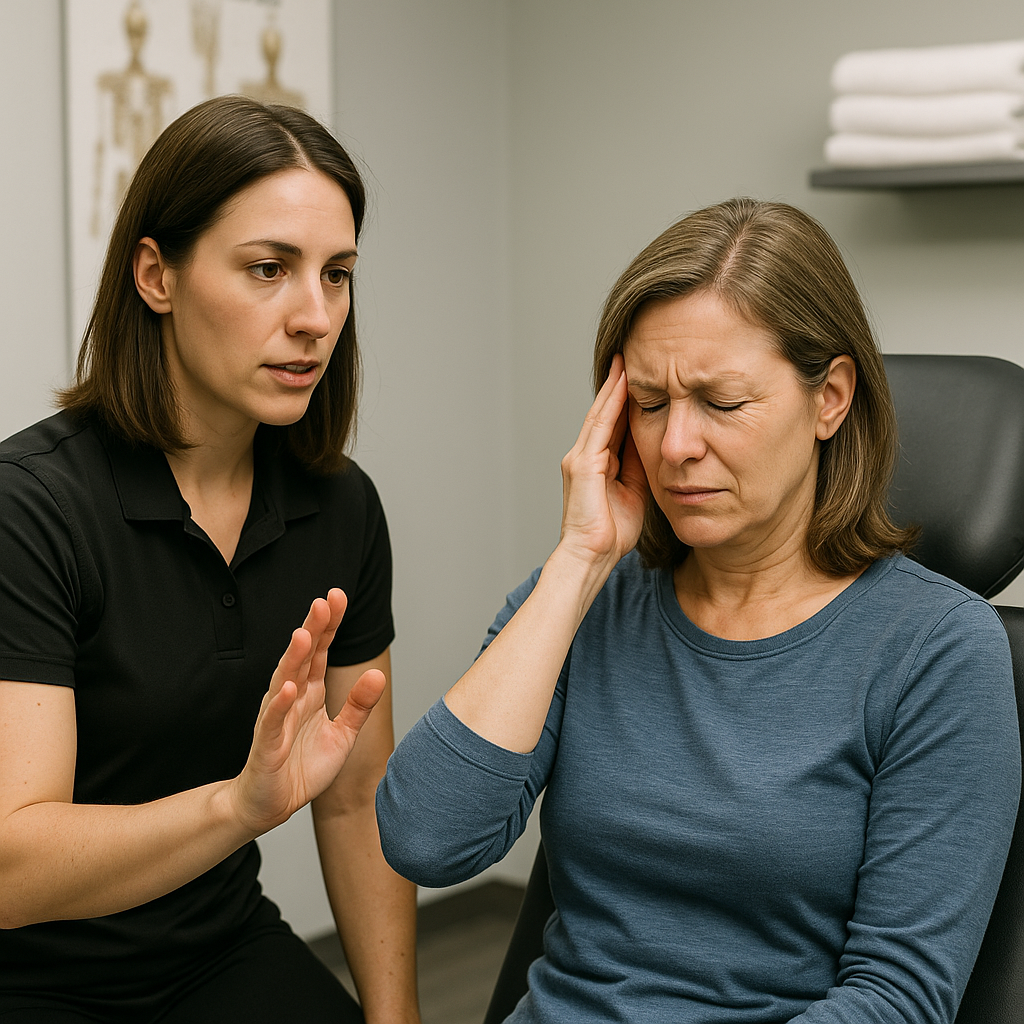Why Your Dizziness Isn’t Going Away (and How to Fix It)
Most people with dizziness have already been to multiple providers. They’ve seen their doctor, maybe tried some pills, or even gone to a therapist who “does vestibular.” Yet weeks or months later, they’re still spinning.
The problem? Not all dizziness is the same. And not all therapists are trained to figure out which type you actually have.
The Main Types of Dizziness We See
BPPV (Benign Paroxysmal Positional Vertigo): The most common, where tiny crystals in your inner ear break loose and roll into the wrong canal.
Vestibular Hypofunction: When the balance nerve itself isn’t working properly, often after a virus.
Cervicogenic Dizziness: Dizziness that’s coming from the neck.
Central Causes: Dizziness from the brain itself, which needs a different approach altogether.
Each type needs a different treatment. The wrong one? You’ll stay dizzy.
Why Training Matters
Here’s what most people don’t know: vestibular physiotherapy is a specialty. A weekend course isn’t enough. Without the right training, a therapist can miss the diagnosis — or worse, make the problem worse.
We recently saw a patient who had gone through exactly this. She had classic BPPV, but after a treatment elsewhere she left feeling even more off-balance. Why? She experienced something called a canal conversion — when the crystals are moved into the wrong canal of the inner ear during treatment. It made her symptoms harder to manage and prolonged her recovery.
At MUV Therapy, because our physiotherapists are trained in advanced vestibular rehab, we identified the issue right away, performed the correct maneuver, and got her back on track. Within just a few visits, she was steady again.
The Truth About Dizziness
Dizziness is confusing. It’s scary. And most people never get a straight answer. But the truth is, with the right diagnosis and the right hands, dizziness can often be resolved quickly and effectively.
What to Do Next
If you’ve been dizzy and haven’t gotten answers — or if you’ve been told to “just live with it” — don’t waste more time. Book an assessment with a vestibular-trained physiotherapist who knows how to test, diagnose, and treat your exact type of dizziness.
👉 At MUV Therapy, every physiotherapist on our team is vestibular-trained, with years of advanced experience. We don’t guess. We test. We explain. We fix.
Call us today at (365) 655-8225 or click below to request a phone consultation with an expert.
Don’t spin your wheels (literally). Get help from someone who actually knows how to stop the spinning.


